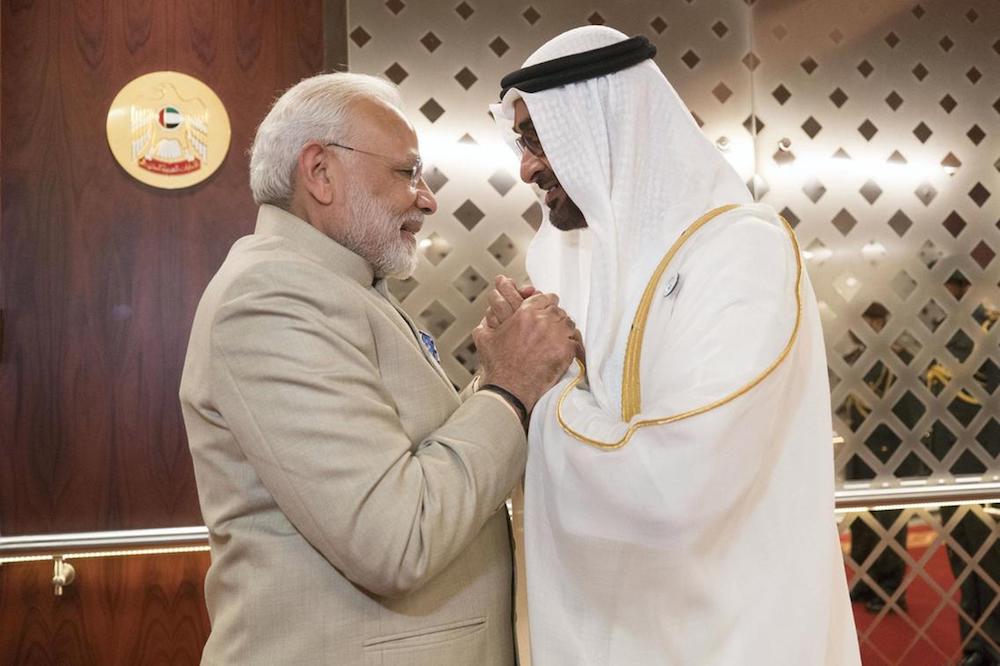India and the Gulf states are a perfect match

Clouds of uncertainty continue to swirl over the global economy, with the US Federal Reserve’s recent rate hike proving especially controversial. Europe is bracing for a “no-deal” Brexit while China and the US remain embroiled in a needless trade war. For most of the Arab world, uncertainty and investor wariness are troubling, especially when investment from overseas falls while reforms are underway to make economies more attractive to investors.
It remains unclear when and if the global market will experience another downturn similar to the 2008 financial crisis, but the alarm bells have been ringing for a while now, despite White House rhetoric. It is imperative that the Arab world, particularly the GCC, hedge against potential losses in mature markets by committing to high-growth markets such as India.
The timing has never been better, especially with the Indian economy poised to grow by 7.7 percent per year until 2021. India’s population of 1.3 billion is second only to China, so there is a massive market for consumer goods and services. This presents key opportunities for investment in construction, real estate, tourism, household goods, financial services, information technology and energy.
For now, there has been some GCC investment in India beginning with DP World investing more than $2 billion for terminals and port concessions and the Abu Dhabi National Oil Company agreeing to supply nearly 6 million barrels for India’s strategic reserve. The GCC and the subcontinent have consistently benefited from trade relations spanning centuries; from the spices, cotton and coffee of old to technology, oil and gas of today.
It is indeed high time to have a GCC-India economic bloc, with the GCC’s funding capability and India’s large markets, skilled labor, and impressive technological advances.
Hafed Al-Ghwell
The GCC supplies more than half of India’s oil and gas needs and in turn India’s exceptional engineering, information technology and manufacturing talent is a boon to the Middle East region seeking to diversify beyond petroleum, gas, real estate and tourism. There are mutual benefits for the region and the subcontinent should there be a free trade agreement or other forms of close cooperation aiming at economic development. More recently, India and the UAE have signed a currency swap agreement, joining the trend to deleverage trade from the US dollar; another development likely to upend the global economy. Such a development will be welcomed by investors in both countries looking to alleviate exchange rate volatility and lower transmission costs.
Prime Minister Modi’s recent trip, coupled with commentary from government officials in India, is a clear sign that there is a lot of interest in attracting GCC funding to the subcontinent. It is estimated that India will need more than $1 trillion in infrastructure investments over the next decade in order to keep up with surging demand, rising incomes and rapid urbanization. The timing is almost perfect for India to pursue the once sought after free trade agreements, banking on ongoing trade, mutual investments and the GCC’s pursuit of new investment destinations for its sovereign wealth funds. Should turbulent conditions and markets still persist in Europe and the US, it is likely that the GCC will seek high-growth markets, if only to pare losses in the wake of Brexit and a perpetual US-China trade spat. The GCC must now bank on India’s large market and need for investments in critical sectors. In exchange, India’s renowned information technology and related innovations would accelerate the GCC’s economic diversification plans with increased manufacturing, education, health care and innovative tech.
It is indeed high time to have a GCC-India economic bloc, with the GCC’s funding capability and India’s large markets, skilled labor, and impressive technological advances.
- Hafed Al-Ghwell is a non-resident senior fellow with the Foreign Policy Institute at the John Hopkins University School of Advance International Studies. He is also senior adviser at the international economic consultancy Maxwell Stamp and at the geopolitical risk advisory firm Oxford Analytica, a member of the Strategic Advisory Solutions International Group in Washington DC and a former adviser to the board of the World Bank Group. Twitter: @HafedAlGhwell










































